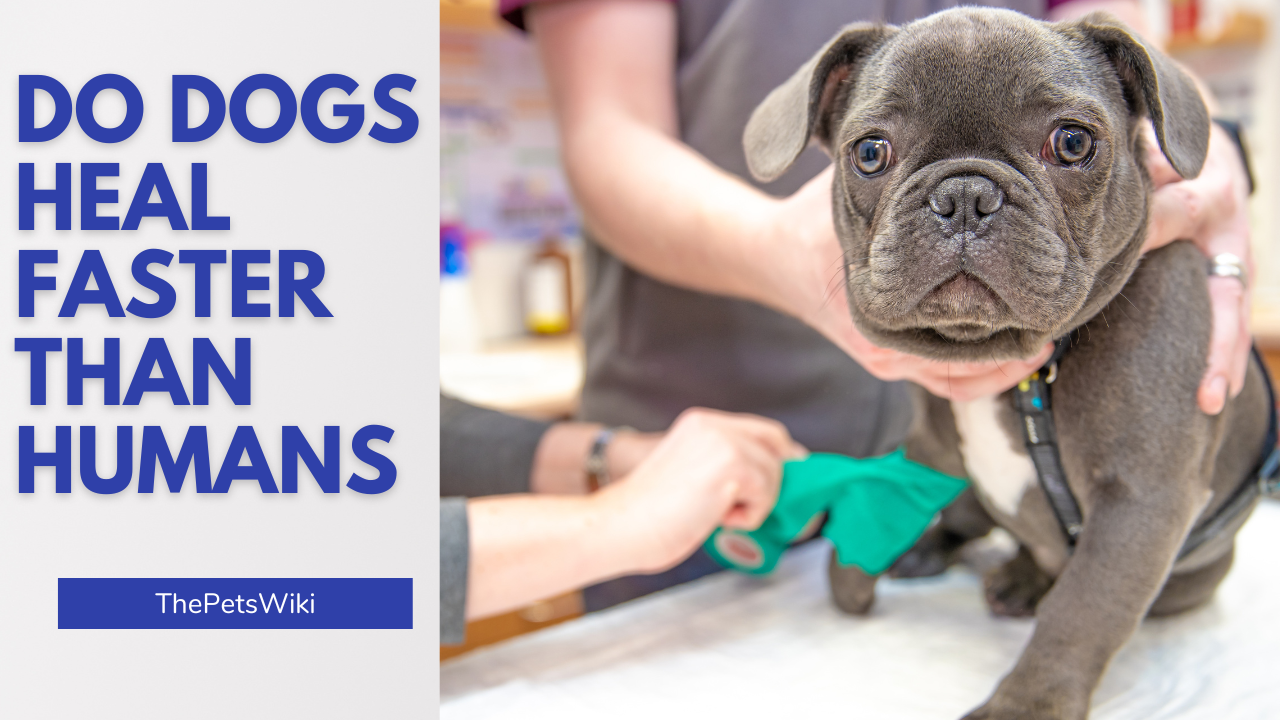In the realm of remarkable abilities our furry companions possess, the capacity for swift healing often stands out. Dogs, known for their resilience and adaptability, seem to recover from injuries at a pace that leaves us in awe. But is scientific merit to the claim that dogs heal faster than humans, or is it merely a perception shaped by our admiration for these loyal companions?
Introduction
Dogs have long been celebrated for their seemingly supernatural healing abilities, from mending broken bones to recovering from surgeries with astonishing speed. But do these claims hold water in scientific inquiry, or are they part of the mystique surrounding our canine friends?
Comparing Healing Processes
To understand whether dogs truly heal faster than humans, it’s essential to delve into the fundamental differences in the healing processes of the two species. While humans and dogs share certain biological similarities, evolutionary factors have shaped distinct approaches to recovery.
Understanding Wound Healing in Dogs
The mechanisms that drive wound healing in dogs are intriguing and merit closer examination. Dogs exhibit unique traits contributing to faster recovery from rapid tissue regeneration to reduced inflammation. This section will explore the specific processes that set canine healing apart.
Do Read: Where to Buy Alizin for Dogs Safely and Conveniently
Factors Influencing Human Healing
While humans possess remarkable healing abilities, certain factors can impede the speed of recovery. Age, overall health, and lifestyle choices play crucial roles in determining the efficacy of the human healing process. Understanding these factors provides a clearer perspective on the comparative aspects of healing.
Speed of Recovery: Dogs vs. Humans
We’ll delve into real-life examples and scenarios where dogs have showcased exceptional recovery to substantiate the claim that dogs heal faster. We can draw insightful comparisons by contrasting these instances with human healing processes in similar situations.
The Role of Instinct in Healing
Beyond the physiological aspects, the instinctual drive to survive and adapt plays a significant role in the healing process. As descendants of wild canines, dogs have an innate ability to overcome injuries. Exploring the emotional and psychological dimensions of healing in dogs and humans adds depth to the discussion.
Regenerative Abilities in Dogs
Particular regenerative abilities contribute to the rapid healing observed in dogs. This section will explore these abilities, backed by scientific insights and studies. Understanding the biological underpinnings sheds light on why dogs bounce back so swiftly.
Medical Applications and Research
The fascination with canine healing abilities has spurred medical research to harness these traits for human benefit. We’ll explore ongoing studies and the potential applications of dog-like healing in advancing human medicine. Could dogs hold the key to groundbreaking medical advancements?
Case Studies
Real-life examples of dogs displaying remarkable healing will offer a glimpse into the extraordinary bond between dogs and their human companions. These case studies serve as a testament to the profound impact of canine healing on our lives.
Rehabilitation and Physical Therapy
Dogs and humans undergo rehabilitation and physical therapy to aid in healing. This section will draw parallels between the approaches, examining similarities and differences in treatment modalities.
Challenges in Studying Healing Speed
Despite the fascination with canine healing, researchers face challenges when attempting to study and compare the healing speed of dogs and humans. Addressing these challenges is crucial for a nuanced understanding of the topic.
Conclusion
In conclusion, the notion that dogs heal faster than humans is a complex interplay of biology, evolution, and the unique bond between humans and their canine companions. While dogs possess extraordinary regenerative abilities, humans bring their own set of strengths to the table. The answer to whether dogs truly heal faster requires carefully considering the intricacies involved.


